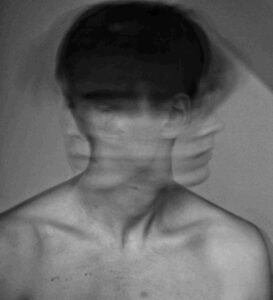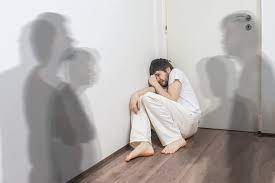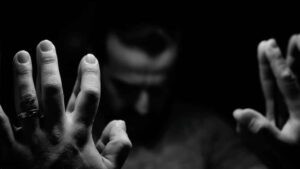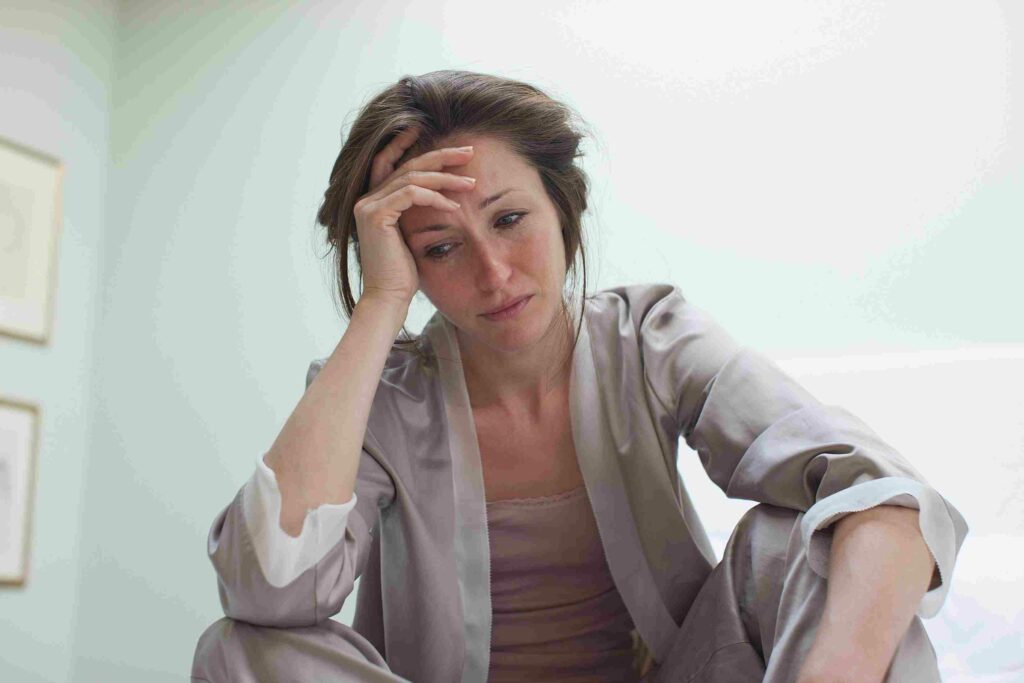Psychotic depression is a serious mental illness that requires treatment. It can lead to hallucinations and delusions, and it significantly increases the risk of suicide. If you or someone you know is experiencing psychotic depression, it’s important to get help right away. In this blog post, we will discuss what psychotic depression is, how to recognize the symptoms, and how to get treatment.
Contents
What Is Psychotic Depression?
 Psychotic depression is defined as a major depressive episode that is accompanied by at least one psychotic symptom. Psychotic symptoms can include hallucinations, delusions, and extremely disordered thinking. This condition is relatively rare, affecting only about one percent of the population.
Psychotic depression is defined as a major depressive episode that is accompanied by at least one psychotic symptom. Psychotic symptoms can include hallucinations, delusions, and extremely disordered thinking. This condition is relatively rare, affecting only about one percent of the population.
Psychotic depression can be extremely debilitating, making it hard for sufferers to function in their day-to-day lives. For instance, if a person is experiencing delusions, they may be convinced that someone is out to get them or that they are in danger. This can lead to paranoia and isolation. Hallucinations can also be extremely distressing, particularly if the person is seeing or hearing things that are threatening or disturbing.
However, psychotic depression is treatable. With proper medical care and treatment, most people with this condition can improve significantly. If you think you or someone you know may be suffering from psychotic depression, it is important to seek professional help. Because this can be a very serious condition, it is not something that should be ignored. Early diagnosis and treatment are key to a good outcome.
How Is It Different From Other Depression Types?
As there are so many different types of depression, it can be difficult to identify which one you or a loved one may be experiencing. Psychotic depression is characterized by the presence of psychotic symptoms in addition to the typical features of major depressive disorder.
These psychotic symptoms can include delusions and hallucinations. While it is possible to experience these symptoms without also having a major depressive disorder, it is much more likely to occur if an individual is also struggling with depression.
Other depression types are generally characterized by their symptoms. For example, seasonal affective disorder (SAD) is often diagnosed in individuals who experience depressive episodes during the winter months when there is less natural sunlight. And, postpartum depression is a type of depression that can occur after an individual gives birth.
It is important to note that psychotic depression is not the same as bipolar disorder with psychotic features. While both disorders share some similar symptoms, they are two distinct conditions. The main feature that differentiates other types of depression from psychotic depression is the presence of psychosis.
If you or someone you know is struggling with depression, it is important to seek professional help. A mental health professional can conduct a thorough evaluation to determine if the individual is experiencing psychotic depression or another type of depressive disorder.
How To Recognize It?
It is important to be aware of the signs and symptoms of psychotic depression, as it can be a very serious condition. Symptoms may include:
Hallucinations
 This is the foremost symptom of psychotic depression and includes hearing voices that no one else can hear or seeing things that are not really there. In fact, psychosis is defined as a break from reality. For example, a person with psychotic depression may believe that they are being followed or watched, even when there is no evidence to support this.
This is the foremost symptom of psychotic depression and includes hearing voices that no one else can hear or seeing things that are not really there. In fact, psychosis is defined as a break from reality. For example, a person with psychotic depression may believe that they are being followed or watched, even when there is no evidence to support this.
Delusions
These are false beliefs that the person holds onto despite evidence to the contrary. For example, a person with psychotic depression may believe that they are being followed or watched by others. It is important to note that not all delusions are paranoid in nature. Some may be grandiose, such as believing that one is a famous person or has
Disorganized thinking and speech
Psychotic depression can make it difficult for a person to think clearly or communicate effectively. A person with psychotic depression may be unable to keep their thoughts in order or make sense when they speak. This is also known as disorganized thinking or thought disorder.
Agitation
It is not uncommon for people with psychotic depression to be in a state of constant agitation. This can manifest itself as fidgeting, pacing back and forth, or an inability to sit still. The person may also have difficulty concentrating or may be easily distracted. More often agitation is seen as a result of the person’s anxiety or worry.
Other signs
There are also some other common signs that can be associated with psychotic depression, such as:
- Anxiety
- Paranoia
- Constipation
- Sleep problems
- Hypochondria
- Intellectual impairment
- Physical immobility
These are some of the more commonly reported signs, but it’s important to note that not everyone experiences all of them. Also, it is believed that some of these signs may be more prevalent in certain cultures. If you are concerned that you or someone you know may be suffering from psychotic depression, it’s important to seek professional help.
What Causes Psychotic Depression?
 There are many possible causes of psychotic depression, but the most likely cause is a chemical imbalance in the brain. This imbalance can be caused by a number of factors, including genetics, stress, trauma, and substance abuse. Let’s discuss in detail how these factors can lead to psychotic depression.
There are many possible causes of psychotic depression, but the most likely cause is a chemical imbalance in the brain. This imbalance can be caused by a number of factors, including genetics, stress, trauma, and substance abuse. Let’s discuss in detail how these factors can lead to psychotic depression.
- Genetics: A family history of mental illness is one of the most significant risk factors for developing psychotic depression. If you have a parent or sibling with psychosis, your risk of developing the condition is increased.
- Stress: Stressful life events, such as the death of a loved one, divorce, or job loss, can trigger psychotic depression. This can be especially true if the event is unexpected or if you’re not prepared to deal with it.
- Trauma: Traumatic experiences, such as abuse or violence, can also lead to psychotic depression. It is believed that the experience of trauma can change the way the brain functions, which can then lead to mental health problems.
- Substance abuse: Substance abuse is another major risk factor for developing psychotic depression. This actually includes both the abuse of drugs and alcohol. Alcohol abuse can lead to psychotic symptoms, such as paranoia and delusions. Drug abuse can also cause these symptoms, as well as hallucinations.
These are some of the most common causes of psychotic depression. If you or someone you know is dealing with this condition, it’s important to seek professional help. Psychotic depression is a serious mental illness that can be very difficult to deal with on your own. If you think you may be suffering from this condition, please contact a mental health professional for an evaluation.
Is Depression Considered A Psychotic Condition?
 These are important questions to ask when considering whether or not someone may be experiencing psychotic depression. Psychotic depression, also known as bipolar with psychosis, is a mental illness that is characterized by both a major depressive disorder and psychosis.
These are important questions to ask when considering whether or not someone may be experiencing psychotic depression. Psychotic depression, also known as bipolar with psychosis, is a mental illness that is characterized by both a major depressive disorder and psychosis.
Psychosis is a mental condition that causes someone to lose touch with reality. People who are experiencing psychosis may see or hear things that are not there, believe false things, or have delusions. Psychosis can make it difficult for a person to function in their everyday life.
On the other hand, depression is a mental illness that is characterized by feelings of sadness, hopelessness, and worthlessness. Depression can make it difficult for a person to enjoy their life or perform everyday activities.
It is a mental illness that is characterized by both of these conditions. Depression is sometimes considered a psychotic condition where a person experiences a loss of touch with reality. A study has suggested that up to 30% of people with major depressive disorder also experience psychosis.
However, the two conditions are different. Psychotic depression is characterized by both a major depressive disorder and psychosis. Depression is not always considered a psychotic condition. Overall, it is a serious mental illness that can be disabling. So do not hesitate to ask for help if you or someone you know may be experiencing it.
How To Diagnose It?
The diagnosis of psychotic depression can be tricky. A person may not have all the symptoms of psychosis, and the symptoms may come and go. That’s why it’s important to see a mental health professional who is experienced in diagnosing and treating psychotic disorders.
There is a complete process and methods that a mental health professional will use to make a diagnosis. This usually includes a clinical interview and psychological testing. These methods work to rule out other conditions that may be causing the symptoms.
A person with psychotic depression may also have a physical exam and lab tests to rule out other medical conditions that may be causing the symptoms. Once other causes are ruled out, the diagnosis of this mental health condition can be made. It is believed that about 15% of people with major depression will also have psychotic features.
Therefore, it is important to be aware of the symptoms of psychotic depression and to seek help from a mental health professional if you or someone you know is experiencing these symptoms. An accurate diagnosis can further help you to develop a treatment plan specific to your needs.
How Is Psychotic Depression Treated?
 When you identify that you or a loved one is dealing with psychotic depression, it’s important to seek professional help right away. The right treatment at the right time will help you to manage the condition. Some of the treatment options include:
When you identify that you or a loved one is dealing with psychotic depression, it’s important to seek professional help right away. The right treatment at the right time will help you to manage the condition. Some of the treatment options include:
Psychotherapy
This can help you to understand your thoughts and feelings, as well as develop healthy coping mechanisms. This is also known as talk therapy or counseling. It aims to help you recognize your thoughts and feelings, as well as develop healthy coping mechanisms.
- Cognitive behavioral therapy (CBT) is a type of psychotherapy that has been shown to be particularly effective in treating depression. CBT helps you to identify and change negative thinking patterns and behaviors that may contribute to your depression.
- Acceptance and commitment therapy (ACT) is another type of psychotherapy that can be helpful in treating depression. ACT helps you to accept your thoughts and feelings, and to commit to taking action in your life that is in line with your values.
Electroconvulsive therapy (ECT)
ECT is a standard and effective treatment for psychotic depression that involves passing electrical currents through the brain to induce seizures. It works by resetting the brain’s chemistry and can provide relief within a few days or weeks. It is usually done in a hospital setting and requires anesthesia. A series of ECT treatments are typically needed for the best results.
Afterward, people usually feel groggy and may have some memory loss. ECT is not right for everyone, so be sure to talk to your doctor about all the risks and benefits before deciding if it’s right for you.
Medication
Medications are usually necessary to treat this condition. Antidepressants are the most common type of medication prescribed, and they can be very effective. However, it can take several weeks or even months for them to work. In some cases, other medications may be necessary to help stabilize mood. These can include:
- antipsychotics
- mood stabilizers
- anticonvulsants
- benzodiazepines
Medications are generally most effective when combined with psychotherapy. In some cases, electroconvulsive therapy (ECT) may also be necessary. Moreover, it is important to discuss all treatment options with a mental health professional to find what works best for you.
Natural treatment
 There are other options for treating psychotic depression that doesn’t involve medication. Some people find that therapy, acupuncture, and exercise help. Also, aromatherapy is believed to be effective in treating this condition. Studies have shown that lavender oil can help to improve mood and reduce anxiety. Some essential other oils can include bergamot, chamomile, and sandalwood.
There are other options for treating psychotic depression that doesn’t involve medication. Some people find that therapy, acupuncture, and exercise help. Also, aromatherapy is believed to be effective in treating this condition. Studies have shown that lavender oil can help to improve mood and reduce anxiety. Some essential other oils can include bergamot, chamomile, and sandalwood.
On the other hand, acupuncture works by stimulating the release of endorphins, which are natural painkillers that can also help to improve mood. It is thought that acupuncture can help to regulate the levels of neurotransmitters in the brain, which overall helps in psychotic depression.
Self-help
There are some things you can do to help manage your psychotic depression. You should:
- Identify your triggers: It is important to know what situations or circumstances may trigger your psychotic depression. Once you know what these triggers are, you can try to avoid them.
- Build a support network: It can be helpful to talk to friends or family members about your condition. You may also want to join a support group for people with psychotic depression.
- Stay on your treatment plan: If you are taking medication for your psychotic depression, it is important to take it as prescribed. You should also keep up with any therapy appointments.
- Monitor your symptoms: It is important to be aware of your symptoms and how they are affecting your life. If you notice any changes in your symptoms, be sure to tell your doctor.
- Manage your stress: This can be difficult, but it is important to find ways to manage your stress. This may include exercise, relaxation techniques, or counseling.
- Get enough sleep: It is important to get enough sleep. This can be difficult when you are dealing with psychotic depression, but it is important to try.
This can be a serious condition, but there are things you can do to help manage it. Be sure to follow these tips and seek out professional help if you need it. With treatment, you can live a full and happy life. And never feel alone, there are many people who suffer from this form of depression. You are not alone.
Conclusion
Conclusively, psychotic depression is simply a more severe form of depression that is characterized by the presence of delusions or hallucinations. This condition is often hard to recognize and treat, but it is important to be aware of the signs and symptoms so that you can get the help you need.
However, with proper treatment, psychotic depression can be managed and people can live relatively normal lives. And do not let the stigma affect you badly because this condition is normal and you are not alone. It even affects about one percent of the population.
So, if you are struggling to reach out to a professional, you can also contact Therapy Mantra. We have a team of professional therapists who can provide you with the support and guidance you need to recover from this condition. Contact us today to learn more about our services. You can also book an online therapy session or download our free Android or iOS app.


